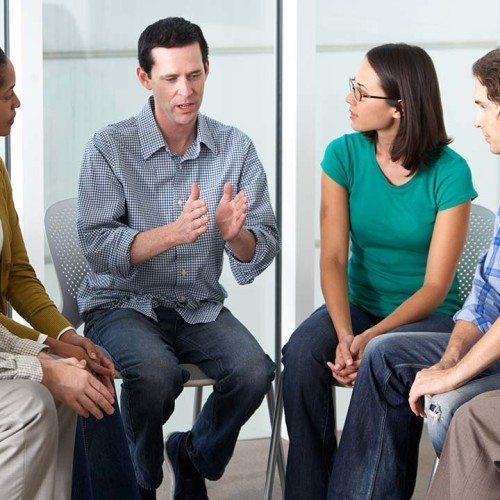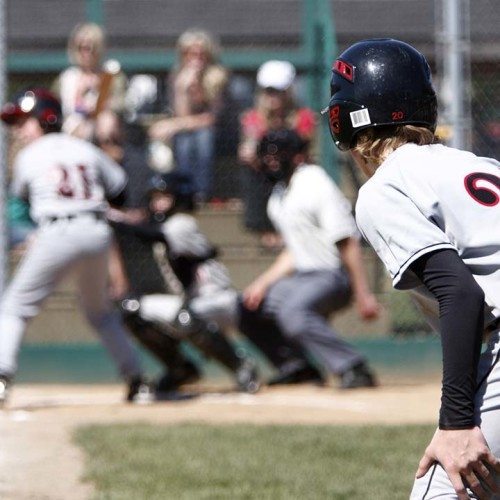After almost a year of social isolation, physical distancing, and world-wide uncertainty, we are seeing higher levels of conflict. This is understandable, as partners, families, and roommates are spending increased time together while also trying to cope with the events going on around them. Even in the best of circumstances, conflicts are bound to arise. Conflicts, in and of themselves, aren’t bad. In fact, many times they are good opportunities that cause people to grow in their relationships with others and their understanding of themselves. With that being said, conflicts can also be challenging because our emotions can lead us into responses that aren’t healthy, and can be quite harmful. That’s why our Family Centred Programming team put together 12 Ways to Respond to Conflict, a resource filled with tips you can turn to when you’re in the heat of the moment. In today’s post, we will be sharing the first 6.
1. Respond, don’t react
If your partner, colleague, or friend is doing something that bothers you, take 5 minutes to think about it. Try to separate that person from the problem, and consider what is bothering you and if there is even a problem that needs to be solved.
- Can you take ownership for your emotions? Just because you are feeling angry doesn’t mean the other person is making you feel angry.
- Manage your expectations. What can you really expect in this situation, given the current circumstances? Facing conflicts both optimistically and realistically can set you up for success.
Spend some time thinking about some questions you could ask the other person about what is going on for them. What are their needs, what makes them feel safe, and how do they want to handle this situation? Having open and honest communication is essential for clearing up conflicts. Once the 5 minutes have passed, it is usually best to have a conversation. Avoiding conflicts never makes them go away. If you feel ready to have a conversation, make sure the other person is also ready. If they are not, set a date and time to revisit.
Information from: How to Think, Allan Jacobs
2. Connecting before correcting
When you are experiencing conflict, instead of correcting, try connecting. For example, when someone shares a concern with you, instead of….
- Judging them
- Arguing
- Defending yourself
- Justifying your position
- Giving them advice
- Sharing a concern you have that is more significant than theirs
- Trying to talk them out of their feelings
Try…. - Listening deeply, without thinking about what to say next
- Honouring their feelings, even if your perspective differs
- Offering empathy
- Asking what they need
Information from: Dan Siegel
3. Identifying underlying needs
Many times, our conflicts can be driven or escalated because of other needs or struggles in our life. When a situation begins to escalate, ask yourself, what might be the unmet need that is underlying the other person’s hurtful words or behaviours? And what about my unmet needs that could be doing the same? Is there something we could do to support each other in meeting those needs?
4. Level of accountability
If you are caught in a conflict and can’t seem to make peace, consider exploring whether or not your levels of accountability match. There are 4 levels of accountability:
1. Ability to acknowledge that someone was harmed
2. Ability to acknowledge that someone was harmed by something you did
3. Desire to understand the harm’s impact on the other person
4. Desire to do something that might help to repair the harm / restore the relationship
If the level of accountability you want from the other person, and the level of accountability they are able to give, don’t match, you are likely to remain in conflict. This could be a good time to seek help from a trusted, skilled third party.
Information modified from: Trauma-Informed Youth Justice in Canada, Judah Oudshoorn
5. Johari’s Window & Curious vs Right
Are you in conflict with someone? Are you pretty sure that you have the full picture, and that your view is the right view? Remember there are things about yourself/the situation that the other person doesn’t know, and vice versa. Try moving away from feeling you are right, toward a place of curiosity. Ask yourself, what does the other person know about themselves, the situation, or even about me, that I might not know? Listen, and try to remain curious.
Information from: Johari’s Window, https://en.wikipedia.org/wiki/Johari_window#:~:text=The%20Johari%20window%20is%20a,settings%20as%20a%20heuristic%20exercise
6. Discounting
When you are in conflict, ask yourself if you might be discounting the situation.
Here are some ways we discount:
- Denying or ignoring the existence of the problem
- Minimizing the significance of the problem
- Holding a fixed mindset about the possibility for change
- Blaming or disempowering personal abilities
After exploring this, ask yourself steps you might take to begin a process toward recognition.
Be sure to read part 2 for 6 more responses to conflict!


 READ MORE
READ MORE





Leave a Comment